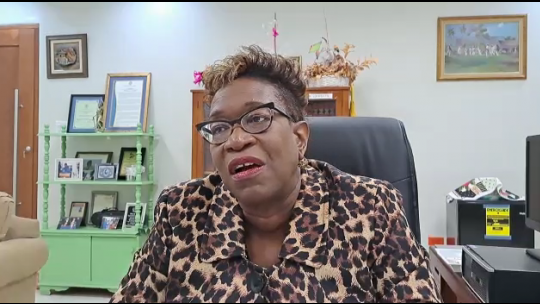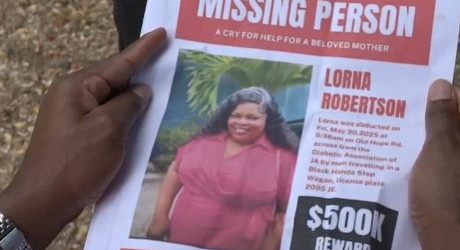A senior deputy Director of Public Prosecutions has written to Prime Minister Andrew Holness and Justice Minister Delroy Chuck asking for a postponement of the vote to extend the retirement age of the DPP.
The senior prosecutor is also calling for an investigation into the operations of the office of the DPP.
The government on Tuesday used its majority in the Lower House to pass an amendment of the Constitution to increase the age of retirement for the Director of Public Prosecutions, without consultation.
The Constitution (Amendment Of Sections 96(1) and 121(1)) Act, 2023, tabled by Justice Minister Delroy Chuck, seeks to extend the retirement age of both the Auditor General and the Director of Public Prosecutions from 60 to 65 years.
But in an 10-page letter, Senior Deputy DPP Kathy Ann Pyke outlined that the process of constitutional amendment must be treated with due consideration and not offend the rule of law.
"For an amendment of the Constitution in respect of the Director of Public Prosecutions to be effected and in particular, Section 96, the justification must be compelling and appropriate in the public interest, the interest of justice and the needs of society," the letter said.
It noted that the Justice Minister's justification for the change was to level the playing field by increasing the DPP and Auditor General's retirement age to match that provided for civil servants in the Pensions Act.
However, the senior deputy DPP argued that this justification "does not accord with settled principles of constitutional law" which recognises that the Constitution is the supreme law and any law that is in contravention of the Constitution is void to begin with.
This would mean despite any disjunction, it would be flawed to seek to amend the Constitution to conform with the Pensions Act.
Furthermore, she said any proposed legislative amendment must be vetted by the draftsman and Committee of Parliament to ensure it is not in breach of the Constitution during the enactment process.
According to the letter, the DPP's role is unique in that the framers of the Constitution invested responsibility in the office holder to prosecute all criminal matters in the country, and the supreme law gives the office independence from control of any authority other than the Courts by judicial review. But the mass of workers affected by the Pensions Act do not fall in this same category.
The amendment to increase the age of retirement may also be a breach of contract as it materially changes a term and condition of the contracts of employment of the DPP and Auditor General without their consultation, the senior prosecutor argued.
The letter also cited the timing of the Bill, the lack of wider consultation, and the fact that the current DPP would in effect be granted an unprecedented two extensions, meaning she could serve up to 22 years if the amendment is passed.
In 2020, DPP Paula Llewellyn was granted an extension of tenure of about three years on the basis that several high profile matters, including the Klansman (One Don Gang) trial and Uchence Wilson trial were yet to be completed.
But the letter by the senior deputy DPP questioned what the basis for a further extension would be considering those trials have since been completed.
Ms Llewellyn's current tenure should end in September.
Succession planning has also come into sharp focus, with the letter contending that although there are competent and capable senior officers presently within the Office of the DPP, it appears the usual practice of allowing for the smooth transition of a successor has been stymied.
Ms Pyke revealed that she and other prosecutors, who wish to remain anonymous out of fear, have concerns about the viability and growth of the office under the leadership of Ms Llewellyn, arguing that an effective leader "inspires, motivates, mentors and provides equal opportunity for the growth and development of staff and succession to ensure institutional cohesion and continuity".
She said the office holder must also plan and implement policies and strategies for the effective prosecution of criminal matters in the public interest, citing instances where judges have complained about the inability of the office to effectively prepare cases for trial within a reasonable time.
In addition, under the leadership of the current DPP, and especially over the last seven years, the rate of attrition of staff has been higher than any other time in the history of the office, Ms Pyke pointed out.
She asserted that this will continue as a number of prosecutors are seeking to leave.
Of the 56 prosecutors employed to the Office of the DPP, she said less than 50 per cent of them have experience of five years and over, adding that in an era of trial readiness and case management, inexperienced prosecutors are being asked to represent the state's interest in complex and serious cases.
She also cited the absence of prosecutors from the DPP's office appearing before the UK-based Privy Council since 2008.
She noted that the Crown is being represented by UK based counsels at enormous costs to the public purse, despite the fact that there are competent and knowlegeable prosecutors at the DPP's office who are capable of handling the matters before the Privy Council.
For these reasons, the senior deputy DPP pleaded for a reconsideration of the proposed amendment, arguing that it would be "manifestly unjust and unreasonable" for Ms Llewellyn to be given a further extension.
She urged the Prime Minister to start the search for a new Director.
Ms Pyke also requested an investigation be launched into the operations of the office of the Director of Public Prosecutions to determine its viability at this time, given the constant departure of prosecutors.
She urged the government to postpone any further vote on the amendment until the investigation into the viability of the office is conducted.
"If this is done I am certain that you will find that there are serious issues to be addressed, which may warrant a conclusion that the prosposed amendment should not be effected at this time in respect of the office of the Director of Public Prosecutions, if at all," the letter concluded.










 All feeds
All feeds







